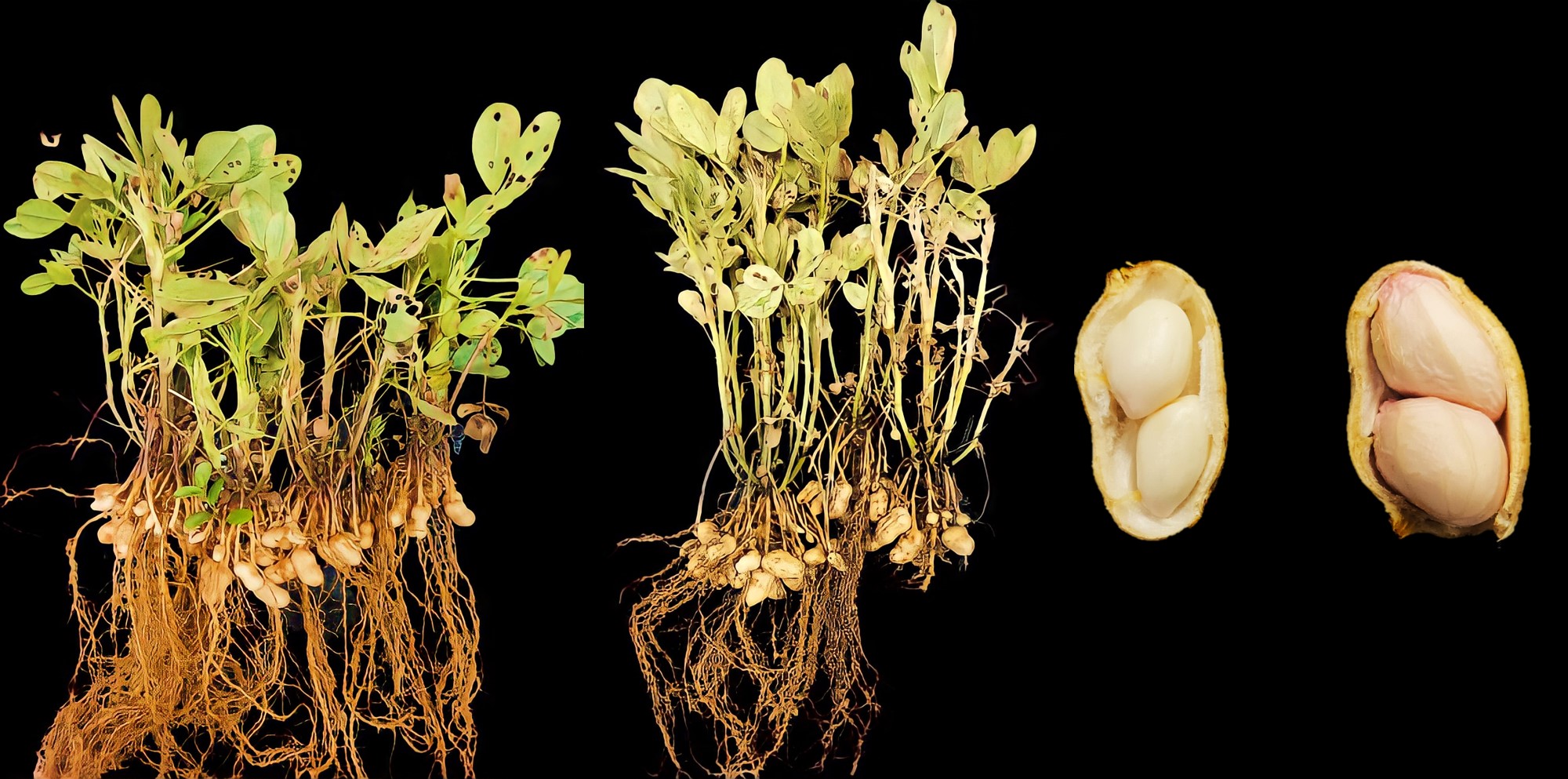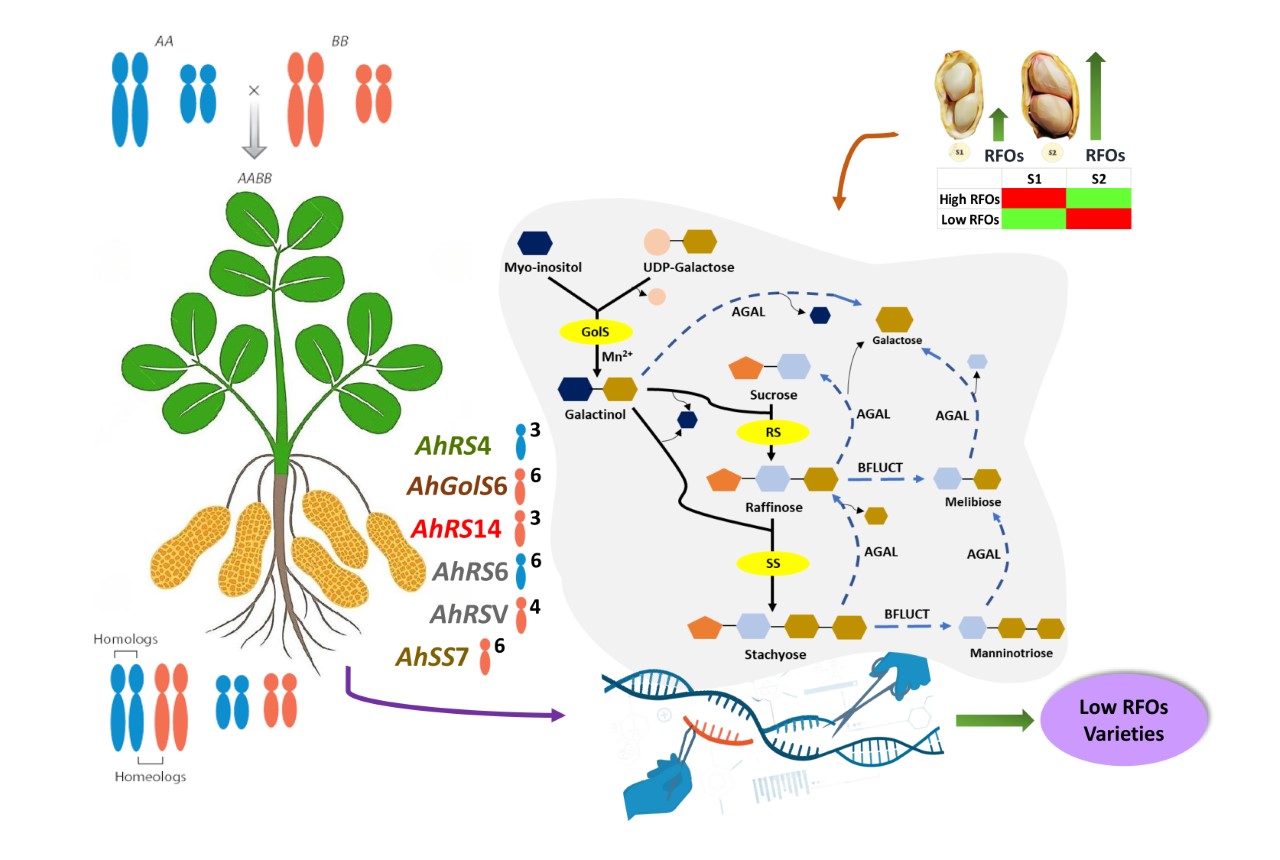
Spatio-temporal expression pattern of Raffinose Synthase genes determine the levels of Raffinose Family Oligosaccharides in peanut (Arachis hypogaea L.) seed
Raffinose family oligosaccharides (RFOs) which are present across the plant kingdom, are known to have important physiological functions in plants. However, the presence of RFOs in legumes causes flatulence, hence are considered antinutrients. Peanut (Arachis hypogaea L.) is a rich source of protein, calories, essential fatty acids, vitamins (mainly tocopherol and niacin), and minerals (like K, Ca, Fe, Zn, Mn, and Na). Despite being a cheap, nutrient-dense food source, seed RFOs in peanut is one of the major factors limiting peanut consumption worldwide. A study conducted at ICAR-IIAB by Dr. Sujit K. Bishi and his team of researchers from different ICAR institutes identified important regulatory genes regulating the RFOs biosynthetic pathway in peanut. Comparative RNA sequencing in contrasting genotypes for seed RFOs content at different seed maturity stages identified some Differentially Expressed Genes (DEGs) showing spatio-temporal expression and selective induction of homeologous genes for RFOs biosynthesis. The seed specific differential expression of raffinose synthase genes (AhRS14 and AhRS6) suggested their regulatory role in RFOs accumulation in peanut seeds. Despite stachyose being the major fraction of seed RFOs, differential expression of raffinose synthase genes indicated the complex metabolic regulation of this pathway. The transcriptomic resource and the genes identified in this study could be studied further to develop low RFOs varieties, thus improving the overall nutritional quality of peanuts
Read the full paper at https://doi.org/10.1038/s41598-023-27890-z
(Compilation: Rajarshi Sanyal & Sujit K. Bishi)
